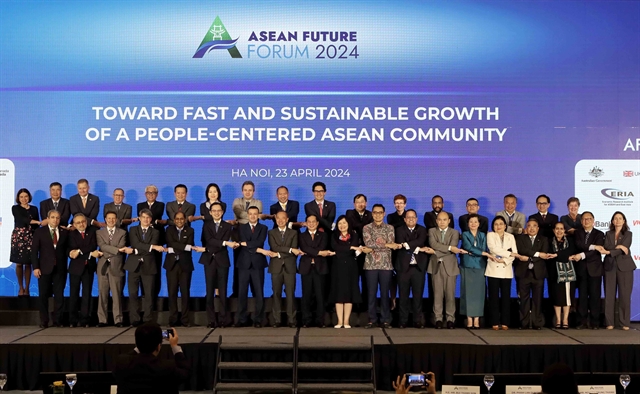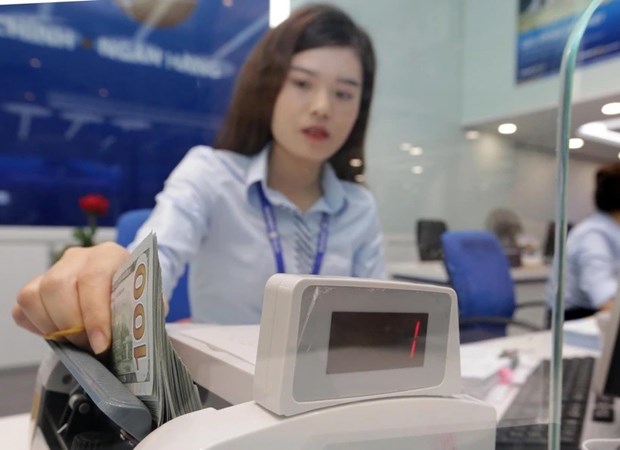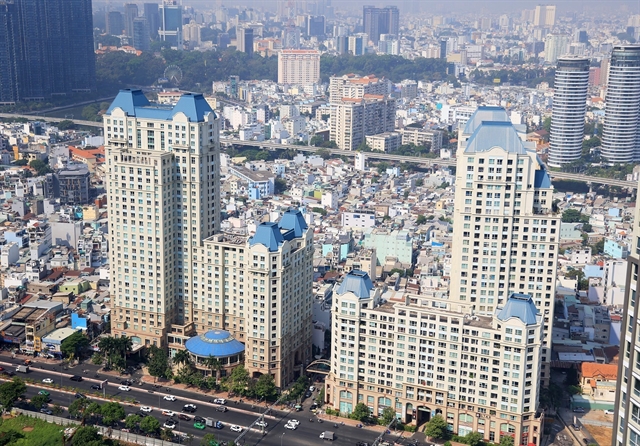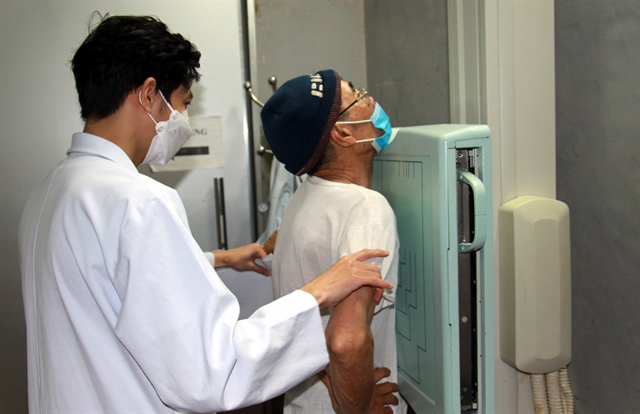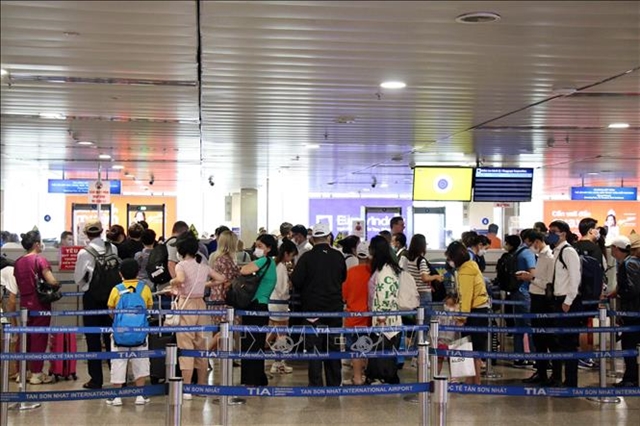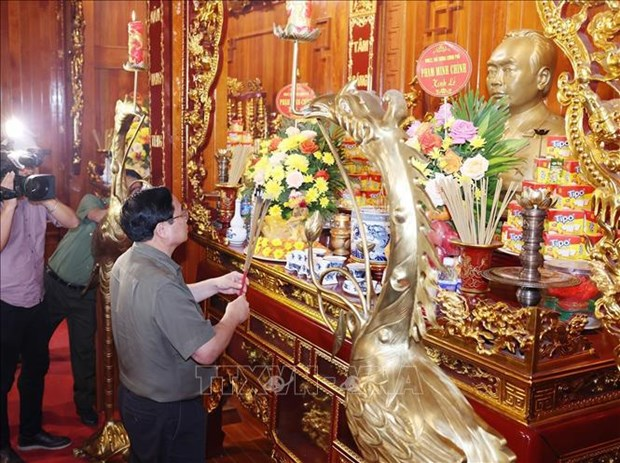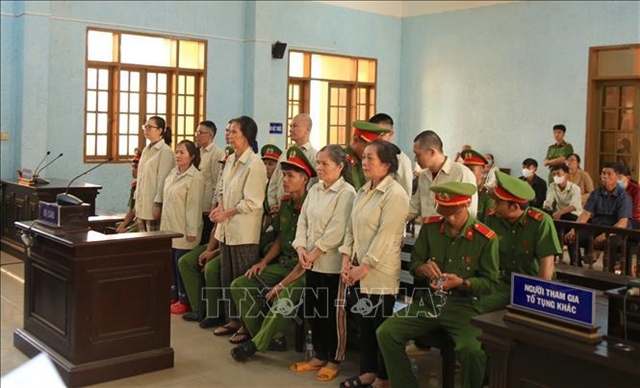 Society
Society
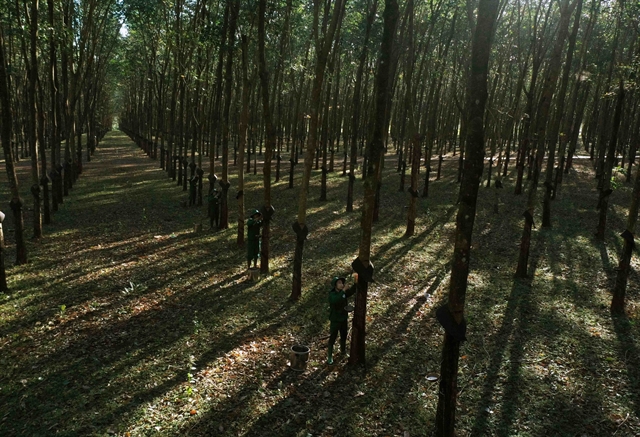
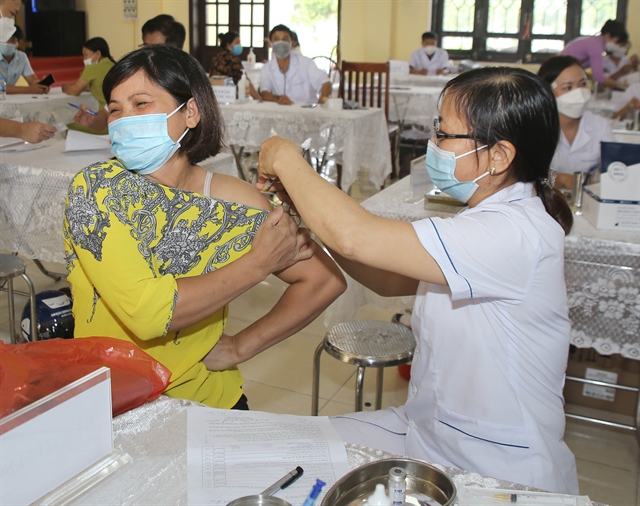
|
| Sputnik V vaccines being administered for people in Gia Viễn District, the northern province of Ninh Bình. — VNA/VNS Photo Thuỳ Dung |
HÀ NỘI — Minister of Foreign Affairs Bùi Thanh Sơn, head of the Government's Working Group on vaccine diplomacy, said Việt Nam needs to develop a master plan for COVID-19 vaccines in 2022 based on the country’s demand.
He made the statement at a meeting of the working group in Hà Nội on Wednesday to evaluate the results of the tasks assigned by the Prime Minister over the past two months. At the same time, the group members discussed the orientation of vaccine diplomacy in the new situation.
Reports presented by the Ministry of Foreign Affairs and the Ministry of Health at the meeting said that under the drastic direction and participation of the leaders of the Party, the State, the National Assembly and the Government and the close, effective and timely coordination between domestic ministries and branches and Vietnamese diplomatic missions abroad, vaccine diplomacy has achieved positive results. The total number of vaccines arriving in Việt Nam has increased continuously in recent months.
As of October 13, Việt Nam has received about 90 million doses of vaccine from COVAX, bilateral donations, and its own order.
In addition to vaccine advocacy, the Working Group promptly advised and recommended the Government to promote cooperation in vaccine production technology and support the domestic vaccine production and testing process. The group also helps promote connection to import drugs to treat COVID-19.
A number of Vietnamese companies have cooperated with the US, Russian and Japanese firms to transfer technology, produce and pack vaccines, especially new technology mRNA vaccines.
In terms of supporting domestic vaccine production, Nanogen Company has reached a cooperation agreement with India on testing and cooperation in vaccine production.
In the context of the COVID-19 pandemic, Việt Nam actively lobbied and received a large amount of essential medical equipment worth tens of millions of dollars from many international partners, organisations and overseas Vietnamese.
The representative of the Ministry of Health assessed that, with an increasing number of vaccines being shipped to the country, vaccination work has been sped up, making an important contribution to pandemic prevention and control, helping to reduce the infection rate and prevent the spread of the virus and number of deaths.
Up to now, the whole country has administered one dose of vaccine for more than 54 per cent of the population over 18 years old and full doses to about 22 per cent of the population. It is expected that by the end of October 2021, Việt Nam can reach the vaccination rate to shift to the phase of safe adaptation to the virus.
Concluding the meeting, Minister Bùi Thanh Sơn said the results achieved recently by the working group are very important, creating prerequisites for the country’s transition to a phase of safe adaptation to the pandemic, restoring production and business activities.
Sơn said three factors are vital for safe adaption, which are vaccination on a large scale, raising people's awareness of pandemic prevention and control; and ensuring the capacity of medical facilities.
Accordingly, the Minister said the group's most important task from now until the end of the year is to continue to mobilise and ensure that partners deliver vaccines as committed.
At the same time, it is necessary to develop a vaccine master plan for 2022 on the basis of domestic demand, including vaccines for children from 5 to 12 years old, from 12 to 18 years old and booster shots, as well as the promotion of domestic vaccine production.
Amid the uncertain and prolonged developments of the pandemic, the minister suggested the group uphold the sense of responsibility, work closely and flexibly to offer timely suggestions regarding vaccine diplomatic activities that match domestic situation and demand, contributing to socio-economic development in the new normal.
Vaccine crunch
During an interview with the media on Wednesday, health minister Nguyễn Thanh Long, however, cited some difficulties in the access to vaccines.
He said that the biggest difficulty is the legal issues related to buying, selling and importing vaccines.
"We have to accept most of the conditions of vaccine suppliers such as reimbursement agreements, disclaimers, confidentiality of information and also the risks associated with late delivery,” he said.
The second challenge is the global shortage of vaccine supplies. Currently, even the COVAX mechanism has not met the initial plan to supply vaccines to many countries, including Việt Nam.
Another difficulty is that countries change their policies in vaccination, such as expanding the target population, and giving booster shots.
The health ministry has also worked to accelerate the inoculation, and as a result, Việt Nam's vaccination rate stays high as compared with that of many other countries in the world, even surpassing 1 million doses each day.
Long said economic recovery and the resumption of social activities depend on vaccination, adding that his ministry has continuously urged localities to speed up the inoculation. — VNS

